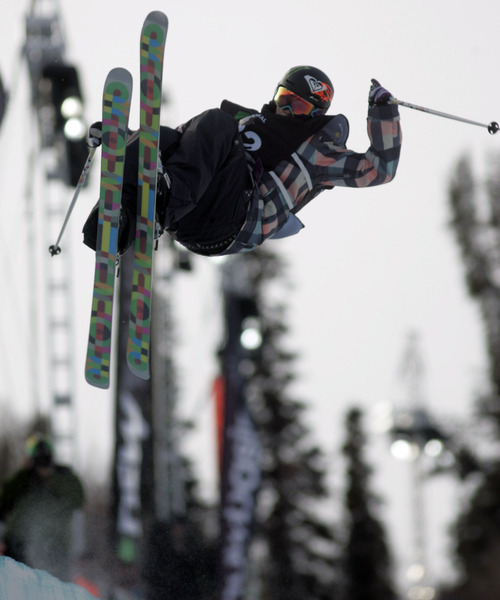This is an archived article that was published on sltrib.com in 2012, and information in the article may be outdated. It is provided only for personal research purposes and may not be reprinted.
Sarah Burke was only 29, not just in the prime of her life but also a high-flying and beloved acrobat-on-skis with a chance to make history as the first gold medalist in her sport at the 2014 Sochi Olympics in Russia.
The Canadian freestyle skier, who fought for a place for women in her spectacular daredevil sport, died Thursday at University Hospital — nine days after suffering a severe head injury in a fall at the superpipe at Park City Mountain Resort.
Burke had been comatose and in critical condition since her fall Jan. 10, when she suffered a torn vertebral artery in her neck that caused bleeding in her brain. She also suffered a cardiac arrest at the time of the accident, her family said in a statement, depriving her brain of oxygen and causing "severe" and "irreversible" brain damage that led to her death.
It was not clear whether Burke died while on life-support systems or after being removed from them.
Either way, she "passed away peacefully, surrounded by those she loved," according to the statement. In accordance with her wishes, the family said her organs and tissues were donated to help others.
Talented and beautiful, Burke was royalty in her sport — married to fellow freestyle skier Rory Bushfield, featured in ski films and swimsuit magazines, and dedicated to helping her sport grow. She was widely recognized as a pioneer for women in halfpipe skiing — similar to snowboarding's halfpipe, except on skis — and was a driving force to get it accepted into the Sochi Olympics.
"She was a great friend to all of us and gave so much of her time" to the Women's Sports Foundation "and helping young people," tennis legend Billie Jean King said in a Twitter message. "She was a champion on and off the slopes and will be greatly missed."
As a four-time champion at the Winter X Games, Burke would have been considered a top medal contender in Sochi. She was training for next week's Winter X Games in Aspen during a private sponsor event when she was hurt.
Family members in their statement said emergency personnel responded and administered CPR to Burke on the scene, "during which time she remained without a pulse or spontaneous breathing." They said studies in the University Hospital emergency department showed she retained brain-stem function, and she was placed on life support until doctors performed surgery the next day to repair the torn artery.
A battery of tests later revealed the irreversible brain damage, the family said.
Burke's publicist said the family will not make any other public comments about the accident and that they continue to decline media requests for interviews.
Family members said they were "moved by the sincere and heartfelt sympathy" expressed by supporters around the world, and thanked the doctors, friends and fans who helped during the past nine days. For those who have inquired about donating money to help pay medical expenses, the family suggested they visit giveforward.com/sarahburke.
mcl@sltrib.com
Twitter: @MCLTribune
Facebook: @RSLTribune —
'Action sports': Issue of their safety to resurface after death
Sarah Burke's death is sure to rekindle debate about the safety of so-called "action sports" such as snowboarding and halfpipe skiing.
Burke was injured on the same halfpipe where snowboarder Kevin Pearce suffered a serious brain injury in a crash before the 2010 Vancouver Olympics.
Athletes and sport officials defend the record, saying that the mandatory use of helmets and air bags along the sides of the halfpipe during training have helped make the sport as safe as possible.
Even Burke acknowledged in past interviews that she knew the risks of flipping, twisting and spinning high above the walls of the halfpipe — which have grown to 22 feet high in the past few years.
"You're going to take a lot of crashes learning and perfecting things," she said last year. "That's something that you kind of know as you go into it."



